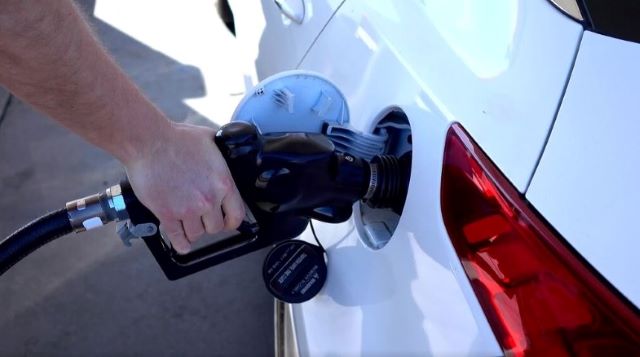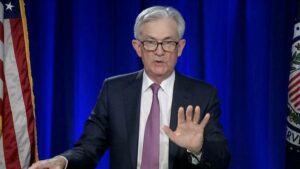The U.S. crisis oil stash is at the center of attention as gas value increases

A new flood in fuel costs has passed on President Biden scrambling for choices to take care of business.
Here is an explainer on the nation’s oil holds – and regardless of whether tapping them would really be compelling.
One that is standing out enough to be noticed is the likelihood that the Biden organization will let unrefined petroleum out of the country’s crisis oil store, or the Strategic Petroleum Reserve.
Much will rely upon oil costs, which have risen above the last year, recuperating to their pre-pandemic levels to say the very least. In any case, subsequent to ascending to more than $86 in October, they have since dropped to under $80.
A ton of elements are influencing costs — including the way that the White House is currently looking at tapping the reserve.
What is the Strategic Petroleum Reserve, or SPR?
The SPR was set up after the oil emergency of the 1970s. The oil is put away in underground salt caves in Texas and Louisiana. The caves presently hold in excess of 600 million barrels of oil. That is somewhat short of what one month of oil at current U.S. utilization levels.
It’s a reserve of unrefined petroleum that the U.S. keeps up with if there should arise an occurrence of crisis. In case supplies are disturbed, as by a tropical storm or a conflict, the U.S. can tap the stores and stay away from calamitous deficiencies.
Congress has as of now requested the arrival of a huge number of barrels over the course of the following not many years for non-crisis reasons.
As well as being tapped for crises, the oil in the hold can likewise be advanced out to oil organizations (which reimburse it with premium), or auctions off to fund-raise for the central government.
For what reason is Biden thinking about tapping the SPR now?
In October, U.S. unrefined costs rose to seven-year highs. It was an exceptionally fast increment from prior in the pandemic, when costs even momentarily turned negative, which means oil dealers were really taking care of others to take barrels their hands.
The crisis oil hold isn’t theoretically expected to be tapped as a method for overseeing costs — it should oversee significant stockpile interruptions, which the market isn’t at present encountering. In any case, it is one of only a handful of exceptional apparatuses the president needs to push oil costs down.
Furthermore, rising energy costs, including flammable gas and coal just as oil, are a significant supporter of high expansion.
OPEC has declined to support creation to address exorbitant costs, in spite of White House requests. The oil cartel drove by Saudi Arabia has stayed with its strategy of steady expansions underway as the worldwide economy keeps on recuperating from the pandemic.
That has gone out under extreme strain to effectively address exorbitant costs. All things considered, history has shown that flooding gas and food costs can take a substantial political cost.
U.S. oil makers — under tension from their own financial backers — have likewise not expanded creation by however much they ordinarily do when costs are this high.
For what reason is Biden thinking about tapping the SPR now?
“The effect would almost certainly be gentle and fleeting, as indicated by previous recorded instances of deals,” Louise Dickson, senior oil markets investigator at Rystad Energy, said in a note this week.
That is on the grounds that a one-time discharge doesn’t actually move the basic organic market elements that drive oil costs.
Simply the chance of a delivery from the SPR has as of now helped drive costs down. A genuine declaration would be relied upon to push costs down more … yet, just for a brief time.
The size of the impact on business sectors would likewise rely upon how enormous the delivery is.
Consider the possibility that numerous nations tapped their stores.
China is allegedly considering a delivery from its own SPR, in spite of the fact that it’s not satisfactory assuming it’s a reaction to the allure from Biden. Some different nations have demonstrated they accept their stores ought to be put something aside for potential inventory shocks, not used to move costs.
In any case, even an organized delivery may just have an impermanent effect. In June 2011, the declaration of a SPR discharge facilitated through the International Energy Agency to react to an emergency in Libya pushed costs down 6%. In any case, after fourteen days, costs were directly back where they had been.
What’s the standpoint at oil costs?
Late projections from the Energy Information Agency, the International Energy Agency and OPEC all anticipate that oil supply will increment by ahead of schedule one year from now, and that the world will end up with an oil excess. That would push costs down.
Yet, a few experts are more suspicious, and foresee that costs will stay high well into 2022.

Una Denver was a professor of Science as well. But her hobby is writing so she builds up her career in writing. She lives in Chicago. Now she is works as a news writer .
Disclaimer: The views, suggestions, and opinions expressed here are the sole responsibility of the experts. No Florida Recorder journalist was involved in the writing and production of this article.








